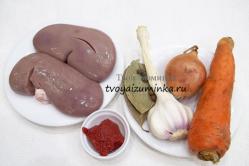Antipyretics for children are prescribed by a pediatrician. But there are emergency situations for fever when the child needs to be given medicine immediately. Then the parents take responsibility and use antipyretic drugs. What is allowed to give to infants? How can you bring down the temperature in older children? What medicines are the safest?
The spelling of suffixes is closely related to morphology. There are various rules for writing this morpheme, they are studied differently for each part of speech. Consider what are the verbal suffixes.
Suffix -ova-/-eva-, -yva-/-iva-
These suffixes form imperfective verbs, to which the question "what to do?" For example: draw, dance, paint, dance.
Morphemes -ova- / eva- form imperfective verbs from other parts of speech, usually from nouns:
- command - to command;
- test - try;
- envy - envy;
- excitement - to worry;
- expense - to spend;
- grief - grieve;
- conversation - to talk;
- participation - participate;
- feeling - to feel;
- sympathy - sympathize;
- stroke - stroke.
The spelling of these morphemes is checked by the form of the verb in the first person singular. numbers in the present. In order to put the verb in the right form, you need to ask the question: "What am I doing now?" The answer will be:
- I am dancing now;
- I am drawing right now.
As you can see, the verb ends in -th. In this case, the suffix -ova- / -eva- is written.
Examples of words in which the verbal suffix -ova-/-eva- stands out:
- I envy - envy, welcome - welcome, explore - explore, organize - organize, wring - uproot, worry - worry, peck - peck, attack - attack, pursue - pursue, use - use, enmity - enmity.
The morphemes -yva-/-iva- also form verbs that ask the question "what to do?" For example: take a bite.

The suffixes -yva-/-iva- produce imperfective verbs from perfective verbs:
(what to do?) test - (what to do?) test.
The spelling of these morphemes also depends on the 1st letter. the only one. real numbers. time. Let's remember the question: "What am I doing now?" And the answer will be: "I'm dancing now", "I'm finishing now."
After that, we determine that at the end - I am / - I am.
Examples of words in which it stands out:
Choking - choking, inventing - inventing, swaying - swaying, educating - educating, biting off - biting off, refusing - refusing, searching - searching, lubricating - greasing, hanging - hanging, painting - painting, sawing - sawing, unwinding - unwinding, pulling away - pull apart, draw - draw, loosen - loosen, scatter - scatter, wink - wink, hang - hang, experience - experience, shudder - shudder, think - think.

Suffixes in participles
Morphemes -ova-/-eva-, -yva-/-iva- are preserved in real participles.
This is due to the fact that participles, denoting a sign of an object by action, are formed from verbs, and the spelling of verbal suffixes is preserved in them. For example:
Verb suffix -va and vowel before it
In the event that the stress falls on the final part of the verb, it is impossible to single out -ova- / eva-, -yva- / -iva-, since the suffix will be different - va. It is always stressed, and this differs from previous derivational morphemes. For example, it is distinguished in the words:
- weaken-wa´-th;
- sweat-wa´-th;
- poly-va´-th;
- sell-va'-t;
- sing-wa'-th.
This suffix forms an imperfective form from a perfective, it appears in the form of nesses. V. and disappears in the verbs of owls. V. This will help to highlight it in the word:
- weaken (sov.v.) - weaken-va-t (non-sov.v.);
- sweat (sov.v.) - fog-wa-be (non-sov.view);
- water (sov.v.) - water-va-t (non-sov.view);
- to pass through (owl. century) - pass through (non-sov. look);
- sing (sov.v.) - sing-wa-t (non-sov.view).
Appearing in verbs, it takes on stress, and the vowel in front of it turns out to be unstressed and turns into a spelling. To select it, the following rule applies: to correctly write a vowel before the stressed suffix -va, you need to skip this suffix.
Suffix -e-
This verbal suffix is written in intransitive verbs, from which questions of the accusative case cannot be raised:
- black-e-be (from what?) from grief;
- seriously-e-be (from what?) From problems;
- rusty-e-be (from what?) from humidity;
- turned white-e-be (from what?) from old age.
Such verbs contain the meaning of an action that occurs without extraneous influence, and this meaning is introduced by the suffix -e.
Vowels before the suffix -l-
The verbal suffix of the past tense -l- is usually found after spelling vowels: ver ... l, ve ... l, hung ... l, measured ... l, detour ... l, despaired ..., glued ... l, se ... l, clean ... l.
To choose a vowel before -l-, you need to put the verb in the initial form. The vowel that comes before -t will remain before -l:
- twirl - spit;
- winnow - winnow;
- to start - started;
- depend - depended;
- measure - measured;
- repent - repented;
- bow - bowed;
- cherish - cherished;
- hope - hoped;
- travel around - traveled;
- despair - despaired;
- glue - glued;
- reyat - reyal;

- listen - listened;
- sow - sowed;
- clean - cleaned;
- hear - heard.
Is the standard. It is also preserved in gerunds before -in- and -lice-: despair-lice, stick-in, listen-in, sow-in, clean-in.
Task for pinning
So, when you know what verbs are and how they are written, you can move on to the practical part.
Letters are missing from this text. It is easy to restore it if you remember some of the studied rules governing the spelling of verbs.
It is interesting to watch the monkeys living in the trees. You can examine them ... and photograph them ... because they, without experiencing fear, freely perform various miracles of dexterity. They don't jump over... waddle, but flutter... waddle from branch to branch, sway... waddle and somersault on the vines. Everything that seems attractive to them, the monkeys pluck, embrace ... with their tenacious paws, inspect ... wail, sniff ... sniff and try to try ... wat, even bring it to their ear to listen ... to. They pawn something ... by the cheek, and discard something ... as unnecessary.

Without any hesitation, they beg for gifts, look at the most beautiful little things, and don’t yawn here, keep your ears open.
Question: Help please, urgently.. Remember the rule about the suffixes -ova-(-eva-) and -iva-(-yva-). First write the verb in the form of the 1st person singular present tense. This will help you determine exactly which vowel to insert into the suffix. Team ... wat, advice ... wat, otta .. wat, talk, pursue ... wat, guess ... wat, test .. wat, guess, floor .. wat, court ... wat, cut ..wat, try..wat, soothe..wat, advise..wat.
Help please, urgently.. Remember the rule about the suffixes -ova-(-eva-) and -iva-(-yva-). First write the verb in the form of the 1st person singular present tense. This will help you determine exactly which vowel to insert into the suffix. Team ... wat, advice ... wat, otta .. wat, talk, pursue ... wat, guess ... wat, test .. wat, guess, floor .. wat, court ... wat, cut ..wat, try..wat, soothe..wat, advise..wat.
Answers:
I command-command, advise-advise, thaw-thaw, talk-talk, pursue-chase, guess-guess, test-test, guess-guess, water-water, care-care, saw-cut, saw, try-try, soothe- reassure, advise, advise.
Command, advise, thaw, talk, pursue, guess, test, guess, water, care for, saw, try, soothe, advise.
Similar questions
- The length of the first segment is 3 times less than the length of the second. What is the length of the first segment if the length of the second is 6cm? 3. The length of the first segment is 3 times the length of the second. What is the length of the first segment if the length of the second is 6cm? Option 5. 1. 6 ducks swim in the pond. Each duck has 3 ducklings. How many times more ducklings than ducks? 2. They collected 10 kg of potatoes, and carrots - 5 times less. How many kilograms of vegetables did you collect? Seryozha has 8 badges, which is 2 times less than Yura. How many badges does Yura have? Option 6. 1. Grandma has 2 chickens. Each hen has 4 chicks. How many times fewer chickens than chickens? 2. The weight of the rooster is 6kg. A turkey is twice as heavy as a rooster. How many kilograms is lighter than a turkey? 3. The father caught 9 perches, which is 3 times more than the son caught. How many perches did the son catch?
- The work function of electrons from zinc is 4 eV. What is the kinetic energy of photoelectrons when a zinc plate is illuminated with radiation with a wavelength. 200nm?
- 1. The leg of a rectangular one is 10 cm, and the median drawn to the hypotenuse is 13 cm. Find the perimeter of the triangle. 2. The hypotenuse of a right triangle is 25 cm, and the height lowered to it is 12 cm. Find the legs of the triangle. 3. The height of a right triangle lowered to the hypotenuse divides it into segments 9 and 16 cm. Find the legs of the triangles.
- 1) change 42 and vіd "єmnik є a fraction of numbers 14 and 7 2) the sum of numbers 8 and 9 is increased by 9 times
- Time Test: I (have) lunch in a restaurant every day. (have / am having / had) I can't go out now because I (do) my homework. (do / am doing / did) We (see) our friends last week-end. (see / saw / have seen) I (know) Mike for three years already. (know / have known / knew) Sophia (go) to the United States of America two years ago. (go / went / has gone) While Sam was sleeping, his mother (cook) dinner. (cooked / was cooking / cooks) At 5 o'clock yesterday I (watch) TV. (watch / will watch / was watching) What … you (do) when I phoned you yesterday? (were doing / did do / did) I (read) this book recently. (has read / have read / read) We already (see) this film twice. (saw, have seen, see) Who just (break) the window? (broke / has broken / is breaking) He (sleep) when his father came from work. (slept / was sleeping / is sleeping) Every summer we (travel) a lot. (travel / travels / travelled) I (play) on the computer when the mobile phone rank. (played / was playing / play) My sister (have) a birthday party tomorrow. (have / is having / has)
Question:
Remember the rule about suffixes -ova, -eva, -iva, -yva. First write the verb in the form of the 1st person singular present tense. This will help you determine exactly which vowel to insert into the suffix. Team .. to, advice .. to, otta .. to, talk .. to, pursue .. to, guess .. to, test .. to, guess .. to cut .. vat, try .. vat, calm .. vat, advise .. vat.
Answers:
I command - command, advise - advise, thaw - thaw, talk - talk, pursue - pursue, guess - guess, test - test, guess - guess, water - water, care - look after, saw - saw, try - try, calm - reassure, advise - advise.
Similar questions
- Please check the text for errors. Very necessary. I didn`t go to sea and I didn`t visit different cities or countries on my summer holidays. I stayed at home. But I can't say that my summer was wrong. My summer affairs included doing some exercises in English, solving maths problems and reading many books. But there is a thing, that I am proud of the most. My brother invited me to visit the gym at the beginning of June, and I agreed. So, during 3 summer months, every Tuesday, Thursday and Saturday, I sported. We did power exercises, ran on the threadmills and use other trainers. I`m going to continue visiting the gym, and I think. I spent my summer holidays usefully.



